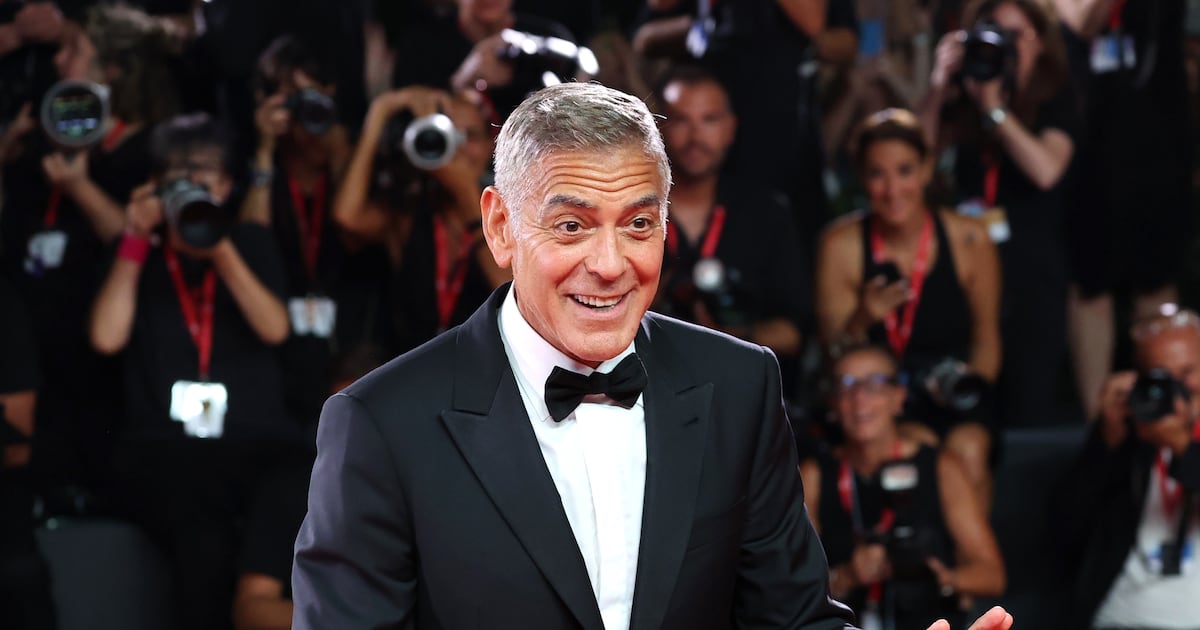For those following the post-Soviet space over the past few years, the historical revisionism on display has been enough to cause serial whiplash. Claims that Crimea has “always been Russian” have competed with the sudden notion that Washington promised a Russian government that NATO would never expand, all swirling amongst beliefs that “Novorossiya”—literally, “New Russia”—is a distinct polity within Ukraine.
Unsurprisingly, this revisionism always spikes to the benefit of Moscow and comes through most clearly via the Kremlin’s stable of propaganda outlets. But for those following the fringe, another piece of historical re-writing has burst to the fore over the past few months, centering on an event over two decades ago.
To hear American conspiracy and far-left outlets tell it, Russia’s recent meddling in the U.S. election is simply blowback from Washington’s apparent role in Moscow’s 1996 election, which saw incumbent Boris Yeltsin knock off the wooly Gennady Zyuganov, a revanchist communist, in a run-off—thanks, supposedly, to American interference.
ADVERTISEMENT
It doesn’t take long to trace the outline of this narrative re-write. From junk Twitter accounts to any number of conspiratorial “news” sites to, of course, the screeching, bizarro Russia Insider website, the notion that America swayed the 1996 election has begun gurgling through fringe actors and publications.
This revisionism has taken root among those who’ve only recently discovered the post-Soviet space on a map, and among those already predisposed to view Moscow as a sympathetic, victimized state, whose post-2014 moves—in Crimea, in Washington—can be excused as simple reaction to prior American malfeasance. Rather than viewing the Kremlin as a revisionist power in its own right, these hard-left factions would rather pump unrepentant whataboutism for all to see.
The narrative, as it is, appears to stem largely from a 1996 Time magazine cover. Featuring a puffy Yeltsin holding an American flag, the headline is impossible to miss: “YANKS TO THE RESCUE.” Focused on the efforts of a trio of West Coast American consultants—George Gorton, Joseph Shumate, and Richard Dresner, all of whom had been close to former California Gov. Pete Wilson—the piece portrays the three as supposedly essential to Yeltsin’s re-election. In a fit of arrogance, one consultant describes his work as “simple education, Campaigning 101.”
The cover, and the angle, have been too good to pass up for whingeing, far-left sites looking to excuse Russia’s hacking campaign. Truth Out put forth a prime example last month, claiming the consultants “secretly ran Yeltsin’s re-election campaign.” AlterNet recently featured an interview in which the guest—who himself runs a website positing that Obama led an “assault on FDR’s New Deal and LBJ’s War on Poverty”—added that Yeltsin was little more than a “drunken U.S. stooge.” One 2006 article on the topic from an “independent socialist magazine” has also seen a recent resurge, allowing new readers to check out the magazine’s “Reflections of Fidel” section.
But the claims that the U.S. swayed the 1996 election haven’t been limited solely to crank conspiracy sites. The Guardian ran a piece in late 2016 to such an effect, even citing New York University’s controversial Stephen Cohen, perhaps best known for lending credence to the “autonomy referendums” Russian-backed separatists held in eastern Ukraine. (In keeping with a pattern, Cohen this month cast doubt on whether Syrian President Bashar al-Assad was actually behind the recent chemical-weapons attack.) Far-left outlet Jacobin ran a piece that, while far more even-handed than most other the other fringe fluff, nonetheless claimed that the U.S.’s 1996 efforts were “an even bolder interference campaign” than what we saw from the Kremlin in 2016.
To be sure, it was an open secret that Washington preferred Yeltsin to Zyuganov in 1996; as President Bill Clinton told Deputy Secretary of State Strobe Talbott, save for a nominating speech, “we’ve got to go all the way in helping in every other respect.” Indeed, there were certain avenues Washington pushed to help Yeltsin’s chances, including backing a $10.2 billion loan from the International Monetary Fund to Russia. The U.S.’s support was sufficient to land in Carnegie Mellon post-doc Dov Levin’s recent database of Washington- and Moscow-led electoral interference.
But the idea that Washington’s 1996 efforts compare in either form or fashion to Russia’s 2016 campaign is not simply poor history. It’s a rhetorical tactic that undercuts, purposely or otherwise, the magnitude of the Kremlin’s assault on America’s democratic underpinnings. Clinton’s efforts, for instance, went no further than Obama’s push to sway the 2016 Brexit vote. Only the most strident claim Obama “interfered” in the U.K.’s move to exit the European Union.
Likewise, for those who actually followed the threads of Russia’s 1996 election, the idea that American consultants swayed the final vote—or that they even played a notable role in Yeltsin’s campaign—is as farcical as the idea that Moscow’s 2018 presidential election will be free or fair.
For instance, Michael McFaul, former U.S. ambassador to Russia and doyen of Russian democratization studies, wrote that the consultants’ claims that they have “brought democracy to the evil empire” is “ludicrous.” Further, many of the pieces of advice bumbled by these consultants were either already in play, or smacked of such obvious import that they bordered on outright condescension. The angle pursued by Time, McFaul added, “insult[ed] the intelligence and sophistication of the Russians who really orchestrated the campaign victory, embarrass[ed] American journalism, and taint[ed] the legitimate achievements of Americans who have lived and worked in Russia for years to strengthen that country’s nascent democratic institutions.”
Other witnesses to the election, or players in it, back McFaul’s claim.
Yeltsin’s daughter told The New York Times that none of the Americans’ work was “central, either in terms of planning or strategy.” Yeltsin’s chief political adviser added that the Russian president’s team carved one of the campaign’s primary lines of attack, centering on an anti-communist push, “without any help from American advisers,” saying that the Americans hardly made their presence, or their work, known. As the Times noted, the Americans “seem to have had no contact with any of the other top campaign strategists.” Yeltsin’s head pollster added that, “when all the real decisions were made, they were not present.” Talbott, the Clinton Administration’s Russia hand, similarly said that the American consultants’ role was “minuscule.”
But rather than examine, say, support from Russian oligarchs via the now-notorious loans-for-shares scheme, or the death of Chechen leader Dzhokhar Dudayev, or even runoff support from third-party candidate Gen. Alexander Lebed, and how these factors conspired to help Yeltsin mount a come-from-behind victory, many American reporters appeared eager to buy into the consultants’ own spin. Regurgitating the consultants’ claims, these reports, as the Times noted, created a meta-narrative of their own: “The Selling of the Consultants.”
And now, some two decades on, the American fringe has parlayed those claims, and that Time cover, into a narrative of their own: that Russian actions in 2016 were somehow justified, on the backs of American interference in 1996.
As mentioned above, some have even claimed the U.S.’s efforts were that much more egregious than the Kremlin campaign. This conveniently ignores the fact that Moscow trafficked in stolen communiques, funneling said documents to a man currently holed up in an embassy to avoid facing sexual assault charges and who, when he wasn’t busy hosting a television show on a Russian propaganda channel, runs an organization whose post-Soviet ties have already threatened anti-autocracy dissidents through the region.
To be sure, the 1996 elections were, for many in Russia, something of a Faustian bargain, a “moment of original sin,” as Bloomberg’s Leonid Bershidsky wrote. And Yeltsin, a few years later, would step aside for a man who still remains ensconced in the Kremlin nearly 20 years later. But contrary to what the far-left fringe may believe, American consultants didn’t return Yeltsin to power. Nor did they beget a Russian leader who, in 2016, would oversee Moscow’s greatest efforts to date to sway an American election.




